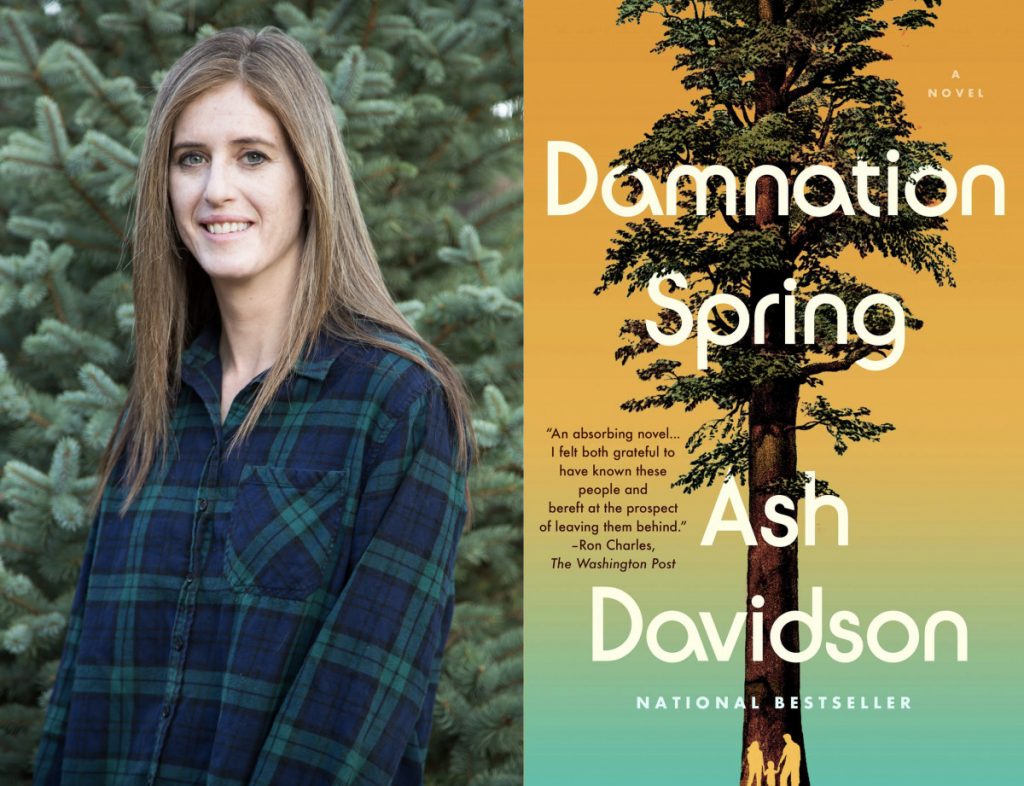
Kaitlyn Finchler
Staff writer
Whether it’s herbicide use in the Pacific Northwest or a train derailment in East Palestine, Ohio, environmental issues are at the forefront of news, and in the case of author Ash Davidson’s Damnation Spring, literature.
Davidson will give her Chautauqua Literary and Scientific Circle presentation at 3:30 p.m. today in the Hall of Philosophy, where she will discuss environmental issues and storylines in her debut novel.
Her talk can be broken down into four parts: why she wrote the book; the writing process and her family history; introducing people who helped her along the way; and the publishing process.
“I think a lot of people have a novel in their desk drawer,” Davidson said. “A lot of people think about writing a book or do write a book over the course of their lives.”
Before Damnation Spring was published, Davidson said she was “constantly listening” to other authors’ experiences to “decode” what she needed to do to write a book.
“I didn’t understand just how much failure that involved,” she said. “It’s really important to talk about some of the high and low moments. It was a long road for me — it took me almost exactly 10 years from start to finish.”
Damnation Spring is considered by many as a success — including being named as a finalist for The Chautauqua Prize last year. Davidson intertwined elements of failure and grief into Damnation Spring to tell the story of deforestation and logging in the coastal Redwoods in northern California.
“My family lived in the area where the book is set,” she said. “They lived in Klamath for about eight years, and we left when I was 3, but it’s an area I continue to go back to as an adult. I feel very close and attached to (Klamath).”
While Davidson left Klamath when she was 3 years old, she still has displaced bits and pieces of memories.
“In a way, I grew up loving a place that I didn’t properly remember,” she said. “It was partially that my parents had a lot of stories about climate in the redwoods that they told me continually throughout my childhood.”
Writing Damnation Spring was a time machine, she said, and allowed her to “wander around in the world” of her parents’ stories. Davidson said the book is for the “curious reader” who’s willing to put in time to understand the setting and characters before the action starts.
Her love of nature and developing the characters in her book kept Davidson motivated for the decade it took her to write Damnation Spring.
“It was partially a love of the place that can be carried back to the book,” she said. “I got very attached to the characters after 10 years. Even though I invented them, I feel like I met them. They became very real in my mind.”
Davidson said she often finds characters from Damnation Spring making their way into the book she’s currently writing, such as the old logger Lark.
“(Lark) is continually trying to walk into the book even though it’s the wrong time period, place (and) story,” she said. “They’re still alive in my mind, so they keep turning up uninvited.”
Sony Ton-Aime, the Michael I. Rudell Director of Literary Arts, said the book is bringing “very real challenges” to the Week Seven theme, “The National Parks: How America’s ‘Best Idea’ is Meeting 21st-Century Challenges.”
“Some folks are now thinking about the necessity for national parks in a political way,” Ton-Aime said. “Especially for Native people who were displaced, those places are their sacred (land).”
CLSC Octagon Manager Stephine Hunt said this selection allows readers to consider environmental challenges in their own lives.
“It’s also a great conversation about what environmental literature can look like,” Hunt said, “and what it means to fight for and protect a family and community in times of change.”
Hunt said some of these questions may look like: “How do you adapt to difficult times?” and “How do you adapt in a community that survives off of logging, that’s now being bought out by the national government?”
“There’s something about human nature, that when something goes wrong, we want to know why, so that we can avoid it and so we can learn from it,” she said. “The burden of not knowing can really eat at you.”
This is exemplified through Colleen, one of the main characters, who’s married to Rich, a logger trying to save his family — at a cost.
“Once that curiosity and desire to know is instilled in Colleen, it’s very hard for her to let go of it,” Davidson said. “One of the most upsetting things about issues of environmental contamination … is that it’s so very difficult to prove causality.”
Davidson said many people have considered her book to be environmental literature, but she often refers to the book as more community-oriented than a hard-hitting environmental piece.
“I hope that you might be able to come to Damnation Spring and think about why there may be people who disagree with you,” she said, “(who) maybe think about an issue differently and just recognize wherever you stand on that continuum, there are some basic human values that we share.”




